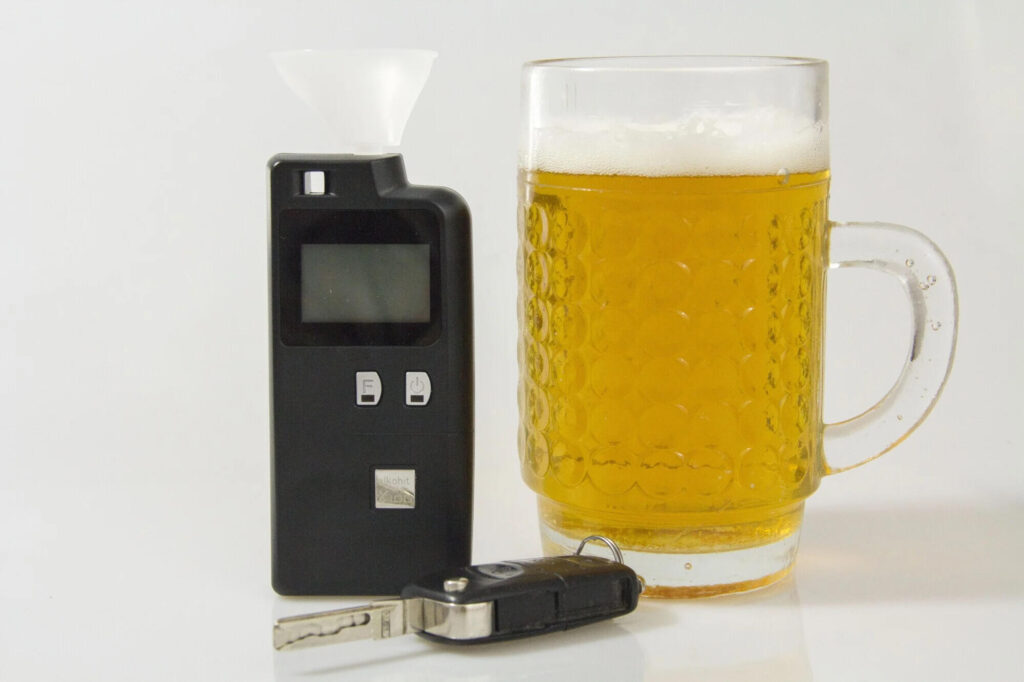What are Four Factors That Affect BAC in New Jersey?
What are four factors that affect BAC? Discover the main elements that influence blood alcohol concentration and how they impact you. Learn more now!
Have you ever wondered why you can sometimes feel woozy after a single glass of wine, yet other times you feel absolutely fine?
It’s not in your head. It has to do with blood alcohol concentration (BAC), and arming yourself with knowledge about what alcohol does with your body can help keep you safe.
In this guide, we’ll share some of the main factors that influence the blood alcohol in your system. So, what are four factors that affect BAC? Read on to find out.
1. Rate of Alcohol Consumption
How you consume alcohol can have as much impact as what you consume. So, it’s essential to understand how this can impact your BAC levels. Here’s what you need to know about one of the main factors affecting BAC.
What Does Rate of Alcohol Consumption Mean?
The rate of alcohol consumption is about how fast the alcohol enters your body. Specifically, it means the rate is the speed of BAC rising in the bloodstream. The faster alcohol enters your blood, the more your liver struggles to process it.
What’s the Impact of a High Rate of Consumption?
If alcohol enters the bloodstream quickly, it will overwhelm the liver. You can think of it like a flooded street after a heavy storm, with the drains unable to remove the water as fast as it enters.
The liver can only process (or metabolize) alcohol consistently.
The alcohol it doesn’t process stays in the blood, which leads to a higher BAC level on a breathalyzer test. That level is what causes the typical effects we see from alcohol, such as an impact on cognitive functions, balance, and speech.
Physiological Limits in the Liver
There are differences in how people’s liver processes alcohol, which we’ll touch upon in other sections of this article. However, what’s important to understand about the consumption rate is that the liver metabolizes alcohol steadily and predictably.
It always goes through the same process: turning a toxic substance into an acid that our bodies can remove. So, everyone’s body reaches a point where the liver becomes overloaded and unable to do its job efficiently.
Managing the Rate of Consumption
Pacing your consumption of alcohol is essential if you want to prevent a high BAC level. Space alcoholic drinks over extended periods and drink water or non-alcoholic beverages in between.
These non-alcoholic fluids will help you lower your BAC and the adverse effects of alcohol, like slowed cognitive functions.
Pacing your consumption will also help you stay in control of your drinking, helping you remain conscious of your choices and ensuring you don’t overconsume, make yourself ill, or have a very high BAC level.
2. Food Consumption
Your food consumption will determine your BAC levels, including what you eat before drinking or while drinking.
The food in your body will change the rate of alcohol consumption and the way it’s absorbed into the bloodstream. Once you understand this, it can help you make safer and smarter drinking choices.
Eating to Slow Alcohol Consumption
Food slows the passage of alcohol when it reaches the small intestine and lowers the speed at which it enters the blood. That steady effect means you won’t see the high spikes in BAC levels.
Instead, you’ll get a gradual rise and lowering of the levels in your body. Conversely, drinking on an empty stomach will make you feel the effects of alcohol fast and lead to peaks in BAC levels even on a low level of alcohol drinking.
Types of Food
The type of food you eat will determine your BAC levels, as different foods are absorbed in the body at different speeds. Protein-rich foods like meat, fish, and dairy are best.
They sit in the stomach for a while and act as a barrier, delaying the speed at which alcohol enters the intestines. Adding high-fat foods — such as olive oil, butter, or avocados — to your meals can slow the effects of alcohol.
Finally, consider having plenty of fiber with your meal. Whole grains and green vegetables will help lower the alcohol absorption rate in the stomach and stop it from going straight to the bloodstream.
Eating for Low BAC Levels
It’s important to remember that what you eat will impact your blood-alcohol (BAC) levels. Before drinking, prepare a healthy, balanced meal.
Avoid highly processed or high-sugar food. By doing so, you’ll be taking proactive steps to manage your blood-alcohol levels and make safer choices about alcohol consumption. You won’t feel the full impact of alcohol and will have better control and cognitive functions after drinking.
3. Body Composition
Your weight and body composition will impact your BAC levels. Everyone’s body has a different speed at which it processes and removes alcohol from the body, and knowing this can help you better manage your alcohol consumption.
Let’s examine some body composition factors that might impact your BAC levels.
Body Weight
In general, a higher body weight can lower the BAC levels for the same level of alcohol. That’s because individuals carrying more weight have a larger volume for alcohol distribution.
A substance like alcohol disperses through body compartments, primarily water compartments, and someone with a larger body will have a more extensive area for the alcohol to disperse.
Nevertheless, this isn’t a uniform rule because the rate also depends on body composition.
Fat and Muscle Composition
When you have two people with the same weight, you also have two different compositions of fat and muscle. And that has an impact on BAC levels.
Muscle is better than fat at absorbing and diluting the effects of alcohol, so those who have a low body fat percentage will cope better with alcohol and won’t feel the effects as fast.
Therefore, when considering body weight, remember that the proportion of fat and muscle in that weight will significantly impact alcohol in the bloodstream.
Making Drinking Decisions Based on Your Body
It’s helpful to remember that your body is individual, and that will shape how you react to alcohol.
Suppose you are drinking with a friend who is taller and more muscular than you. In that case, you are likely to feel the effects of that alcohol faster than your companion.
In other words, you must be cautious about the alcohol you consume. Always remember that a more petite and slight body will react quickly.
4. Gender Differences
Males and females metabolize alcohol differently. That is partly biological and partly due to physiological factors.
However, these variances, together, mean your sex will dictate how your body handles alcohol and the BAC levels after drinking. Here’s more about what’s happening in your body.
Alcohol Metabolising Enzymes
The liver metabolizes alcohol using two enzymes: ADH (alcohol dehydrogenase) and ALDH (aldehyde dehydrogenase). These break down the alcohol’s chemical bond so that the body can begin to process it.
Females have lower levels of these enzymes in the body. So when they consume alcohol, more of it is absorbed into the bloodstream when compared like-for-like with a male.
That means women will have higher BAC levels than men when both consume the same amount of alcohol, all other factors being equal.
Body Composition and Hormones
Women generally carry higher levels of body fat than men. They also have lower water content than men. All this means the alcohol will be less diluted and enter the bloodstream at a high level.
Hormones have an impact, too. Women experience greater hormonal fluctuations, and some, like estrogen, impact how the body handles alcohol.
A high estrogen level slows the metabolism of alcohol, meaning a woman will experience more sensitivity to it and have higher BAC levels. High estrogen levels happen during the follicular phase, or the first part of a woman’s monthly cycle, and peak around ovulation.
Practical Implications
It’s essential to know and understand the difference in alcohol absorption depending on whether you are a man or a woman. That’s why you’ll see different safe alcohol guidelines for the two sexes.
When drinking, it’s crucial to manage units according to your sex and not what those around you are consuming. That will prevent you from becoming more intoxicated and drinking at unsafe levels.
It also means you need to make other careful choices when drinking, such as how fast you drink and what you eat while drinking. If companions seem to be coping well with the effects of alcohol, it doesn’t necessarily mean that you are equally safe.
What Are Four Factors That Affect BAC Levels?
So, what are four factors that affect BAC levels?
In short, they are gender, body type, food consumption, and alcohol consumption rate. However, as this guide shows, you need to take a holistic approach that considers all four, as they are interlinked.
Always make sensible choices about alcohol and focus on what’s best for your body, not what those around you are doing.
If you are facing a DUI arrest in New Jersey, you need an attorney who understands BAC levels and can give you the proper legal advice. The Law Office of Steven Ellman, who has 39 years of experience, should be your first point of contact. Our expert legal team is here to help, so talk to us about your case today.














